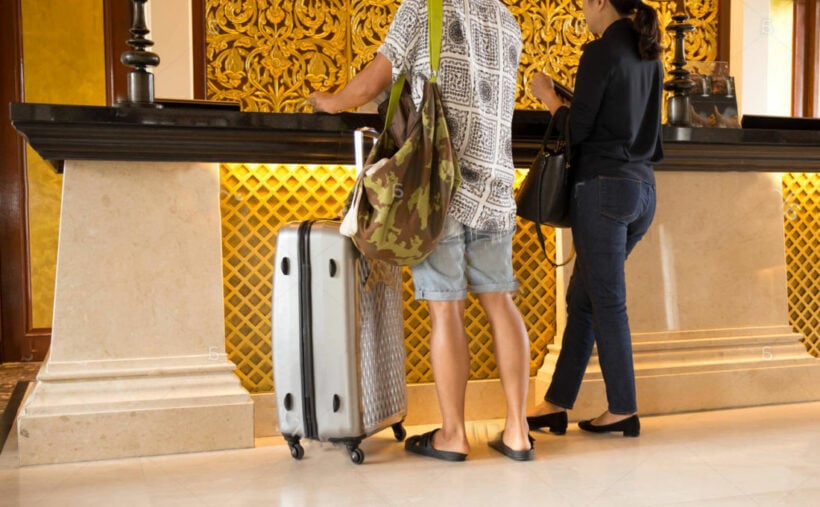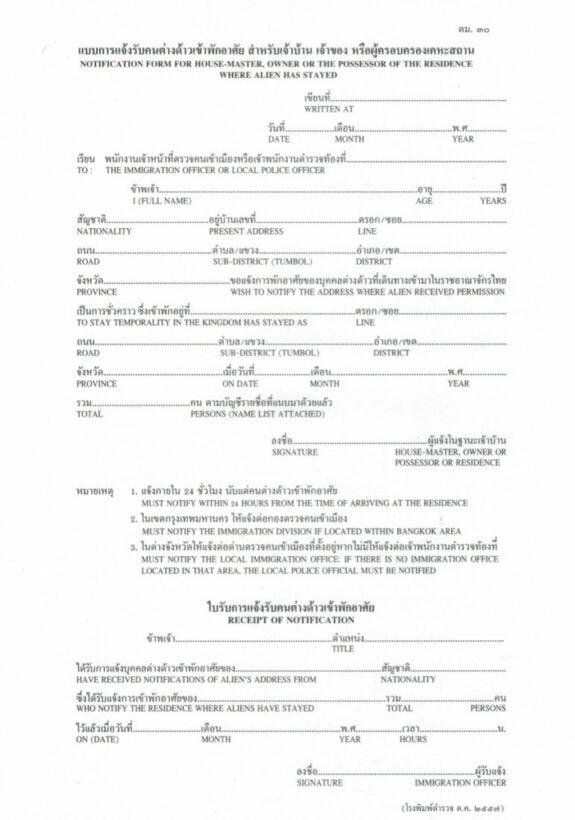Thailand keeping track of foreigners – the TM30 reporting form

The TM30 reporting procedure is a Thai immigration requirement. The form is designed to assist keeping track of foreigners – tourists and expats – whilst in Thailand. It must be completed by the owner or landlord to report the stay of guests within 24 hours of their arrival.
As with many things in Thailand the enforcement will not be uniformly applied and some people may get away without reporting, maybe for years. But if Immigration do check, and you haven’t been doing the required reporting, then fines and other immigration problems will follow.
We’ve tried to simplify the TM30 to these main points.
If you’re staying at a hotel, the hotel will do the registration for you after you’ve checked in. But it also applies to the following…
- If you own and live in a home in Thailand
- If you’re staying with a Thai friend
- If you’re staying a property that isn’t properly licensed
The TM30 form is designed to report foreigners locations during their short or long-term stay in Thailand. If you are staying in a condo or apartment block, the owner must register your stay.
The rationale from the Thai government is that the TM30 provides a way to monitor the ‘goodies’ but also the ‘baddies’, in the hope of deterring foreign criminals to choose Thailand as a place to hide out.
The law governing the TM30 form was introduced a long time with the Hotel Act of 2005, but has since expanded beyond hotels to cover landlords owning property or apartments that are not classified as hotels. Authorities believed this was necessary to include the rental of condos and other unlicensed premises rented out to paying guests, such as room-sharing apps like AirBnB. The rules also apply to Thais hosting foreigners.
The report must be completed by hotels, serviced apartments or by landlords of private properties. It is the landlord’s responsibility to submit the TM30.
If you are staying in a friend’s house, your friend still needs to submit the TM30 form. The same applies to a foreigner married to a Thai and carries a Thai visa.
If you’re an expat living permanently in Thailand and travel to other places within the country – any other address other than your usual home address – you need to inform immigration once you’ve returned.
This is what you need to fill in a TM30…
- Copy of your departure card
- Copy of your passport photo page
- Copy of your most recent visa stamp page
The landlord or reporting person needs…
- Copy of the title deed to their property
- Copy of the rental contract
The TM30 is not the same as 90 day reporting.
Online registration is available HERE, when it’s working. You need to register a username and password then you just login whenever you need to. The fine for not reporting is 1,600 Baht per person.
To protect yourself, as a tenant or guest, you should ask your landlord or accommodation owner if you have already been registered.

Latest Thailand News
Follow The Thaiger on Google News:


























